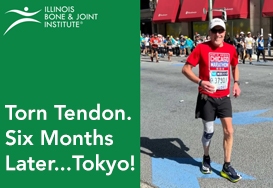If your knee cap is shifting out of place when you bend it or straighten it out, you may be dealing with patellar tracking disorder. It can be incredibly painful when the kneecap shifts from where it is supposed to be to the side. The good news is that patellar tracking disorder is usually fairly easy to diagnose. Even better is this condition usually responds very well to treatment. The first thing you should know about patellar tracking disorder is what causes it.
The Causes Of Patellar Tracking Disorder
Patellar tracking disorder can be caused by a hard impact to the inside of the knee. More usually this condition is caused by other conditions or problems. The patella may be incorrectly shaped making it easier for it to slip out of place. Muscles that are too loose may allow the patella to shift while muscles that are too tight can actually pull the patella out of position. Tendons that attach to the leg, hip and even foot can also become overly loose or tight. Loose, or tight, tendons can cause the same problems as loose or tight muscles. Of course all of these potential issues can be caused by trauma or overuse.
The Pains of Patellar Tracking Disorder
While the kneecap sliding off to the side is a symptom of patellar tracking disorder, it is hardly the only symptom. You may just experience pain when you stand up or travel up or down stairs. Your knee cap may feel like it is getting caught when you try to straighten out your leg. There may also be a grinding or popping feeling when you move the knee. Almost worse than a grinding feeling or getting caught is the feeling that the knee won’t support you when you try to stand.
Get The Patella Back On Track
The good news is that surgery is usually not needed if you experience patellar tracking disorder, though it is an option in some cases. In many patellar tracking disorder cases the physician prescribes physical therapy and rest. It can take a long time for knees to heal, which means physical therapy can last for months. Visiting an orthopedic physician is the only way to know for sure if your knee pain requires surgery or just physical therapy. Schedule online now with one of the Illinois Bone and Joint Institute’s experienced orthopedic physicians to get your patellar tracking disorder, or any other knee pain, under control today. You will be happy you did. After all, IBJI is the best choice for orthopedic medicine in the Midwest.
*This content is for information only and is not intended to replace the diagnosis, treatment, or medical advice from your treating healthcare professionals. The content does not provide medical advice, does not constitute the practice of medicine or other healthcare professional services, and does not create a doctor-patient relationship. You should not rely on this information as a substitute, nor does it replace professional medical advice, diagnosis, or treatment. If you have concerns or questions, seek the advice of your healthcare professionals. If you think you may have a medical emergency, call your doctor or 911 immediately. Do not rely on electronic communications or communicate through this website for immediate, urgent medical needs. This website is not designed to facilitate medical emergencies. The use of the information is at the reader’s own risk. The links are provided for information and convenience only. We cannot accept responsibility for the sites linked or the information found here. A link does not imply an endorsement of a site.




